As our case is new, so we must think anew, and act anew. We must disenthrall ourselves, and then we shall save our country. Renaissance Unity Church in Warren, Michigan, formerly known as Church of Today Marianne Williamson announced her second run for president of the United States on March 4, 2023. By May she was polling at 9%, a significant margin for a fringe challenger to the incumbent president. Williamson became famous in the 1990s after becoming Oprah Winfrey’s spiritual advisor. She began her career by teaching A Course In Miracles, a book by New Thought teacher and clinical psychologist Helen Schucman, which argues for the value of recognizing “awareness of love's presence” through listening to the “inner dictation” of Jesus Christ. Although Williamson was raised Jewish she did not see A Course in Miracles as necessarily Christian, saying, “A conversion to Christ is not a conversion to Christianity. It is a conversion to a conviction of the heart.” Williamson advocates a progressive domestic program that includes socialized healthcare, child tax credit, wiping out student debt, criminal justice reform and support for organized labor. She also advocates a dovish foreign policy including closing overseas military bases and establishing a US Department of Peace that would research ways to peacefully resolve conflict and avoid wars. She has modeled her campaign off of Franklin Delano Roosevelt’s economic bill of rights saying: Roosevelt didn’t live to see the realization of an Economic Bill of Rights. But the idea was kept alive, including in the 1960 Democratic Platform as well as the urging of Martin Luther King Jr. There are echoes of it in the current revitalization of the American labor movement. I introduce it now as the basis for the economic u-turn that is at the heart of my presidential campaign. Once again, the people of the United States are demanding economic justice, and the Democratic Party should be listening to those demands, responding to those demands, and turning them into political power. Williamson is the spiritual leader of a Unity Church in Warren, Michigan known as Renaissance Unity, formerly the Church of Today. Unity is a New Thought religious movement started by American mystics Charles and Myrtle Fillmore in Missouri in the 1880s. I also happen to be a member of a Unity Church. Should Marxists support someone who comes from a New Thought spiritual tradition? What exactly is New Thought? Phineas P. Quimby New Thought has its origin with Phineas Quimby, a practitioner of Mesmerism or “Animal Magnetism” who explained his basic premise thusly: The trouble is in the mind, for the body is only the house for the mind to dwell in…. Therefore, if your mind had been deceived by some invisible enemy into a belief, you have put it into the form of a disease, with or without your knowledge. By my theory or truth, I come in contact with your enemy, and restore you to health and happiness. This I do partly mentally, and partly by talking till I correct the wrong impression and establish the Truth, and the Truth is the cure. Psychologist and historian William James described New Thought thusly: It is an optimistic scheme of life, with both a speculative and a practical side…. One of the doctrinal sources of Mind-cure is the four Gospels; another is Emersonianism or New England transcendentalism; another is Berkeleyan idealism; another is spiritism, with its messages of "law" and "progress" and "development"; another the optimistic popular science evolutionism of which I have recently spoken; and, finally, Hinduism has contributed a strain. But the most characteristic feature of the mind-cure movement is an inspiration much more direct. The leaders in this faith have had an intuitive belief in the all-saving power of healthy-minded attitudes as such, in the conquering efficacy of courage, hope, and trust, and a correlative contempt for doubt, fear, worry, and all nervously precautionary states of mind. Their belief has in a general way been corroborated by the practical experience of their disciples; and this experience forms to-day a mass imposing in amount. New Thought essentially boils down to this: Positive thinking can result in positive changes in life, material wealth, health and mood. Clearly, such idealism is counter to Marx’s dialectical materialist philosophy, but Marx did not completely reject idealism. His early 1844 manuscripts contain a great deal of idealism while even some of his later works such as 1859’s Grundrisse and 1867’s Kapital contains ideas such as exchange value and commodity fetishism that some have regarded as idealist. Some have criticized such idealism as counter revolutionary. V. I. Lenin criticized George Berkeley, father of Berkeleyan idealism, and the “Prolekult” Soviet idealists in his 1908 work Materialism and Empirio-criticism. Marx, although heavily influenced by Georg Wilhelm Friedrich Hegel’s dialectical method, opposed his idealism in his Critique of the German Ideology where he wrote: [C]onsciousness can really flatter itself that it is something other than consciousness of existing practice, that it really represents something without representing something real; from now on consciousness is in a position to emancipate itself from the world and to proceed to the formation of “pure” theory, theology, philosophy, ethics, etc…. It is self-evident, moreover, that “spectres,” “bonds,” “the higher being,” “concept,” “scruple,” are merely the idealistic, spiritual expression, the conception apparently of the isolated individual, the image of very empirical fetters and limitations, within which the mode of production of life and the form of intercourse coupled with it move. Clearly Marxist materialism and New Thought idealism contradict each other, but can they be reconciled? Marx does acknowledge the power of human cognition and consciousness to transform the material world. He wrote in 1844, “Man makes his life activity itself an object of his will and consciousness. He has conscious life activity. It is not a determination with which he directly merges.” It is human consciousness alone that determines history as Marx wrote a year later, “History does nothing, it ‘possesses no immense wealth,’ it ‘wages no battles.’ It is man, real, living man who does all that, who possesses and fights; ‘history’ is not, as it were, a person apart, using man as a means to achieve its own aims; history is nothing but the activity of man pursuing his aims.” This is also a basic axiom that he shares with New Thought. New Thought is a religious, spiritual and metaphysical movement. Marx, on the other hand, advocates irreligious criticism of religion: Criticism has plucked the imaginary flowers on the chain not in order that man shall continue to bear that chain without fantasy or consolation, but so that he shall throw off the chain and pluck the living flower. The criticism of religion disillusions man, so that he will think, act, and fashion his reality like a man who has discarded his illusions and regained his senses, so that he will move around himself as his own true Sun. Religion is only the illusory Sun which revolves around man as long as he does not revolve around himself. Jesus Christ made a similar criticism of religion reported in the books of Matthew and Luke: Watch out for false prophets. They come to you in sheep’s clothing, but inwardly they are ferocious wolves. By their fruit you will recognize them. Do people pick grapes from thornbushes, or figs from thistles? Likewise, every good tree bears good fruit, but a bad tree bears bad fruit. A good tree cannot bear bad fruit, and a bad tree cannot bear good fruit. Every tree that does not bear good fruit is cut down and thrown into the fire. Thus, by their fruit you will recognize them. Should New Thought teachers be regarded as false prophets? Are New Thought teachers deluding people with an illusory opium, or are they disillusioning people to “think, act and fashion” reality so that they will “move around as” their “own true Sun?” What are the “fruits of their labor?” To answer these questions we must dive deeper into the history of New Thought to determine whether it is a malign or benevolent influence on the toiling masses. I have already written extensively on religion’s impact on the socialist movement in early America. The Christian Perfectionists, Shakers and Hicksite Quakers were especially eager to join the 19th century American communal tradition. The participation of New Thought’s predecessors, the transcendentalists and the spiritualists, was also essential to the growth of early American socialism. William Henry Channing Transcendentalist Unitarian minister William Henry Channing founded the socialist community known as Brook Farm in Massachusetts. The transcendentalists believed that people were inherently good, but were corrupted by society’s institutions, particularly money. Marx said essentially the same thing when he wrote about alienation, “The distorting and confounding of all human and natural qualities, the fraternisation of impossibilities – the divine power of money – lies in its character as men’s estranged, alienating and self-disposing species-nature. Money is the alienated ability of mankind.” For some transcendentalists like Ralph Waldo Emerson the way to escape this predicament was to become self reliant. For the transcendentalist socialists at Brook Farm and for Marx, the way was to combine with others. In New Thought, since there is no distinction between the individual and collective consciousness or inner and outer worlds, this contradiction has been resolved. Of course, this puts New Thought practitioners in the difficult position of having to decide for themselves the best course of action in conjunction with the scriptures and the metaphysical practice of looking within. While New Thought practitioner Neville Goddard's radical individualism influenced Ayn Rand’s right-wing “objectivism,” New Thought leader Wallace D. Wattles believed Jesus was a radical socialist. He even ran for congress on the Socialist Party ticket. Imagine that! A religion that tells people to think for themselves so they can "move around" as their "own Suns." According to contemporary New Though practitioner and historian Mitch Horowitz: Is there a dichotomy between Neville’s radical individualism and the communal vision of Science of Getting Rich author Wallace D. Wattles, who saw New Thought as possessing an intrinsic ethic of societal betterment? Not for me. I’m skeptical toward language such as inner/outer, essence/ego, spiritual/material, which buzzes around many of our alternative spiritual communities. Not only do opposites attract, but paradoxes complete. It is in the nature of life. New Thought is not essentially socialist or capitalist. Despite criticisms that it is a movement of get-rich-quick charlatans, it has also been the philosophical home of socialists and communists who saw the practice as a means to achieve social betterment. Like the philosophical science technology of dialectical materialism, New Thought is a religious science technology that need not exclusively be at the service of capitalism. If neoliberal academics can use of dialectical materialism as a tool for their own research and propaganda, New Thought need not be abandoned to the capitalists. Three New Thought socialists, Wallace Wattles, Preston Bradley and Father Divine demonstrate the potential New Thought has to offer the socialist movement. Wallace D. Wattles Wallace Wattles, like Marx, studied Hegel. It was Hegel’s philosophy that brought him to New Thought via what he called the "monastic theory of the cosmos." However, it was religion, specifically Christian Congregationalism, not Marxism or any other political philosophy, that brought him to socialism. Wattles met Congregationalist minister George D. Herron in 1896 who encouraged him to join the Socialist Party of the USA (SPUSA). Wattles devoted his life to Christian Socialism. He wrote a book entitled A New Christ and another entitled Jesus: The Man and His Work in 1910 in which he outlined his vision for Christian Socialism. He used to say: The call of Christ has even been to bear the burdens of an oppressed and disinherited humanity; to join your lives to those of the poor; to feel their pain, to share their suffering, to live for their deliverance – to bow beneath their sorrows in dark Gethsemane; to walk thorn-crowned with staggering steps up to the steep way to Calvary; sustained because beyond the cross we see the riven sepulcher and through it shines the glory of a resurrected humanity. His daughter Florence, who was herself a committed socialist, wrote of him, “The master passion of his life was the establishment of just relations among men.” Wattles and his family struggled with poverty until one day he painted a mental picture of his ideal self in his mind. He began attending New Thought meetings in Chicago and developed a mental technique to obtain greater material prosperity. According to Florence, he pictured himself as “a successful writer, a personality of power, an advancing man, and he began to work toward the realization of this vision.” He began to gain success and recognition for his theories. He tested the theories on himself. His most well-known work is The Science of Getting Rich, published in 1910. Although an ironic title for a socialist, Wattles explains how he reconciled his socialist vision with his New Thought philosophy of getting rich: Man cannot live fully in body without good food, comfortable clothing, and warm shelter; and without freedom from excessive toil. Rest and recreation are also necessary to his physical life. He cannot live fully in mind without books and time to study them, without opportunity for travel and observation, or without intellectual companionship. To live fully in mind he must have intellectual recreations, and must surround himself with all the objects of art and beauty he is capable of using and appreciating. To live fully in soul, man must have love; and love is denied expression by poverty. Man’s highest happiness is found in the bestowal of benefits on those he loves; love finds its most natural and spontaneous expression in giving. The man who has nothing to give cannot fill his place as a husband or father, as a citizen, or as a man. It is in the use of material things that man finds full life for his body, develops his mind, and unfolds his soul. It is therefore of supreme importance to him that he should be rich. Marx argued essentially the same thing in an 1844 critique of Hegel: Man is directly a natural being. As a natural being and as a living natural being he is on the one hand endowed with natural powers, vital powers – he is an active natural being. These forces exist in him as tendencies and abilities – as instincts. On the other hand, as a natural, corporeal, sensuous objective being he is a suffering, conditioned and limited creature, like animals and plants. That is to say, the objects of his instincts exist outside him, as objects independent of him; yet these objects are objects that he needs – essential objects, indispensable to the manifestation and confirmation of his essential powers. Wattles’ vision of getting rich meant balancing altruism and individualism. The Science of Getting Rich says: Get rid of the idea that God wants you to sacrifice yourself for others, and that you can secure his favor by doing so; God requires nothing of the kind. What he wants is that you should make the most of yourself, for yourself, and for others; and you can help others more by making the most of yourself than in any other way. He ran for Indiana’s Eight Congressional District Representative in the election of 1908 and for Madison County, Indiana 50th court district prosecutor in 1910. A few months later, in February, 1911, he died in Ruskin, Tennessee. Labor organizer and Socialist presidential candidate Eugene Debs eulogized Wattles in a letter to his daughter published in the New Thought publication Nautilus: My Dear Comrade :— I have just learned through Mrs. Strickland of the death of your beloved father and beg to offer these few words of loving sympathy in your great bereavement. I was never more painfully surprised than to hear of your father’s untimely death, and I feel as if I had lost not only a comrade beloved, but a very brother in flesh and blood and spirit. Your father was indeed one to win and hold the lover of all who ever touched his hand and looked into his gentle, sympathetic, soulful eyes. He was sweet-natured, perfectly poised, great-hearted, and gifted with an unusually clear vision, and his loving service will bear fruit that is truly golden and preserve his name for all time. I never knew a man to consecrate himself more freely to a cause than did your father to the Socialist movement. And I lovingly pay to him in the hour of his passing this humble tribute to his noble life and his beautiful memory. I beg of you to tender my profound sympathy to the venerable mother, to the sorrowing wife, and to all of the stricken household. There should be no hopeless grief in the home made sweet and white and beautiful for all time by our beloved Comrade Wattles. With love and devotion to you all, I remain, Fraternally yours, (Signed) Eugene V. Debs Although Wattles is perhaps the clearest example of a New Thought socialist, others have incorporated both New Thought and socialist theories in their spiritual and political messages. People’s Church postcard featuring Preston Bradley Preston Bradley was a Unitarian minister who presided over the largest non-Catholic congregation in Chicago. Unitarianism is distinct from Unity, although it shares certain features including the idea that all religions are a path to Divine Truth. Although Unitarianism is not considered a New Thought religion, it has been associated with New Thought’s precursors such as the Channing brothers, William Ellery and Brook Farm founder William Henry, who were extremely close with transcendentalists. Bradley went to the conservative Moody Bible Institute and attempted ordination in the Presbyterian Church, but left in 1912, insisting he would not be held down by any orthodoxy. He founded the Unitarian People’s Church in 1922 after years of preaching at theaters in Chicago. Although not necessarily officially a member of the New Thought movement, Bradley’s teaching contained significant similarities to New Thought ideas. Unitarian civil rights, labor and peace activist Patrick Murfin writes, “There was the positive thinking side of his ministry. This was derided as shallow theology by some. It shared elements made popular by Norman Vincent Peale and Dale Carnegie. But he made it uniquely his own. It was a predecessor to the ‘self help’ revolution that took off in the '70s and shows no signs of abating.” Peale, author of The Power of Positive Thinking, and Carnagie, author of Win Friends and Influence People were not known as New Thought teachers either, but their work drew on the insights of New Thought teachers like Mary Baker Eddy, Neville Goddard and Emmet Fox writing years before. In his autobiography Along the Way, Bradley wrote: I've never met a person, I don't care what his condition, in whom I could not see possibilities. I don't care how much a man may consider himself a failure. I believe in him, for he can change the thing that is wrong in his life any time he is ready and prepared to do it. Whenever he develops the desire he can take away from his life the thing that is defeating it. The capacity for reformation and change lies within. Such a positive message echoes with promise for the downtrodden proletariat. Script writer Irna Phillips was a member of Bradley’s People’s Church. She based the CBS soap opera Guiding Light on Bradley’s radio sermons. Organist Irma Glen, who worked on soap operas for NBC, was also a member. When she wrote to Bradley about her interest in the New Thought movement known as Religious Science, Bradley wrote to her, “Do not allow anyone to hold you to any orthodoxy for no one has a monopoly on Truth, nor do they control it.” Glen would go on to become an ordained minister in Religious Science. Bradley was as progressive a preacher as there ever was. He was an advocate of political theorist Henry George’s land-value tax. He was an outspoken advocate of organized labor. He was an opponent of fascism, anti-Semitism and racism. He joined Emma Goldman’s on-again off-again lover Ben Reitman to oppose obscenity laws that banned education about sexually transmitted diseases. He even persuaded millionaire philanthropist W. Clement Stone to fund the black street gang the Vice Lords in the interest of turning them into a community oriented organization. Bradley lived to be 95 years old. He died in June of 1983. Father Divine, born George Baker Jr., was the son of freed slaves. He was involved in black churches, but he sought to combine different spiritual traditions with his own teaching. He read Mary Baker Eddy, founder of Christian Science, and developed an interest in New Thought. During a 1906 trip to California he discovered the ideas of Charles and Myrtle Fillmore, founders of Unity. Historian Jill Watts explains the Fillmores’ influence on (at the time still known as George) Baker’s spiritual development in her biography of Father Divine, God, Harlem USA: For Baker, much of the attractiveness of Unity School theology rested in its implications. Fillmore’s brand of New Thought provided a formula for the acceptance and inclusion of African Americans without altering or threatening the structure of American society. Exercising mind-power and oneness with God, anyone, regardless of race, had the potential to achieve spiritual and social equality. Black possessed just as much divinity as whites and, by applying mind-power, could overcome oppression and reap the benefits of American enterprise. Positive thinking allowed African Americans to assert control over their destiny and to combat their feelings of powerlessness in white America…. The solution to racism was quite clear; it rested on a spiritual cleansing of the American mind. Father’s Divine incorporated the Fillmores’ ideas of positive thinking into his own theology. Singer Johnny Mercer even credited Father Divine for inspiring his 1944 song “Ac-Cent-Tchu-Ate the Positive." Mercer said in an interview, “[My] publicity agent ... went to hear Father Divine and he had a sermon and his subject was 'you got to accentuate the positive and eliminate the negative.' And I said 'Wow, that's a colorful phrase!’” In 1912 Father Divine declared himself to be the living embodiment of God. This may also have been inspired by Fillmore's teachings on Christ or God consciousness, which Charles Fillmore described as “consciousness of himself as a spiritual being, knowing himself to be the Christ of God, he is I AM, and ready to recreate the world.” Recreation of the world became God’s, or rather Father Divine’s, life-long mission on this earth. Father Divine founded the International Peace Mission in 1931. After withstanding persecution for his anti-racism in the South and arrest and trial for “disturbing the peace” in Sayville, New York, he moved the International Peace Mission to Harlem. The Peace Mission preached celibacy and communal living, similar to the Shakers. In fact, as of 2000, the remaining practicing Shakers and the remaining members of the International Peace Mission considered themselves to be sister organizations. Edna Rose Ritchings, who after marrying Father Divine in 1946 became known as Mother Divine, said of the relationship between the two religions: The Shakers live in Community, just as we live in Community married to CHRIST, and endeavoring to let the Government of GOD rule their Community. It has prevailed through the centuries, and FATHER came in this Latter Day to universalize this Way of Life. It is the Foundation of the coming of the Kingdom of GOD on earth, which Jesus taught us to pray for 'Let the Kingdom come, and let the Will be done.' While in Harlem, the International Peace Mission engaged in many civil rights struggles, including national anti-lynching campaigns. As a result, the Peace Mission came into contact with members of the Communist Party, USA (CPUSA). The two groups formed an alliance. Watts explains: One of the first and most prominent groups to ally with the Peace Mission movement was the Communist party. The only major American party openly committed to fighting for racial equality, the Communists hope to incorporate oppressed black Americans into their struggle. By 1934, the Communists’ United Front, a program aimed at affiliating the party with non-Communist groups on issues of common interest, spread in Harlem. The Communists courted many of Harlem’s religious leaders and focused on Father Divine. Their commitment to equal rights and defense of the Scottsboro Nine impressed Father Divine, and he willingly supported many party activities. CPUSA even went as far as to expel members that criticized Father Divine and his Peace Mission. However, Father Divine opposed welfare and labor unions and insisted that poverty was the result of oppression and injustice, not capitalism itself. Eventually the alliance fell apart as the CPUSA transitioned away from the United Front strategy. Although historically New Thought and socialism have had an uneasy alliance at best, the doctrines of social betterment and the cognitive power to recreate the world offer a link between the two philosophies that has the potential to create a powerful coalition. Filipino philosopher Vincent L. Casil explains in his 2017 dissertation entitled “Marx’s Idealism”: In the Manuscripts, cognition, rather, takes part in the drive to realize a humane world; it has the capacity to create a conception of reality that best serves the needs of humanity. Its idealism suggests that it has a critical role to play for changing and humanizing the world. It shows that the quest for societal change not only requires us to act but also to challenge our assumptions and foundations of our thinking. It requires us to be conscious, not only about the information we have in this world, but also with the interests and needs our cognition serves. In the end, the Manuscripts’ idealist epistemology provides a vantage point where the change even in our very cognition could be asked. It provides a space where we can challenge the foundation of cognition that supports and recreates estranged reality and to create a type of cognition that liberates man from estrangement and serves the creation of a humane world. Early Marx was not so distant from New Thought idealism as it would seem. Marianne Williamson’s program is reformist, yes, but she is running as a maverick candidate that opposes big business and the war machine. Rather than embracing the purity fetish windigo that has infected the left, allying with those who do not completely agree on everything is the only way to a revolution. As Lenin said, “[P]olitics begin where millions of men and women are; where there are not thousands, but millions, that is where serious politics begin.” There are not millions of Marxists yet in the United States today. There are about 15,000 members of CPUSA today. At its peak in 1939 there were about 200,000 members. By contrast, Unity has a mailing list of about 1 million individuals and has about 110,000 official members in about 300 churches. That means Marxists have no choice but to work with those who they do not 100% agree with. That is the only way to win. Although the masses may be reformist, treating disagreements among the masses with sensitivity and kindness is the only way to build the movement towards revolution. As revolutionary Muslim clergyman Malcom X said, “Don't be in a hurry to condemn because he doesn't do what you do or think as you think or as fast. There was a time when you didn't know what you know today.” The bible contains a message as revolutionary as that of Marx or Lenin. John the Elder wrote in the book of Revelations: Then I saw “a new heaven and a new earth, for the first heaven and the first earth had passed away, and there was no longer any sea. I saw the Holy City, the new Jerusalem, coming down out of heaven from God, prepared as a bride beautifully dressed for her husband. And I heard a loud voice from the throne saying, “Look! God’s dwelling place is now among the people, and he will dwell with them. They will be his people, and God himself will be with them and be their God. ‘He will wipe every tear from their eyes. There will be no more death’ or mourning or crying or pain, for the old order of things has passed away.” Marx argued this message has a soothing effect in his 1843 critique of Hegel: “Religious suffering is, at one and the same time, the expression of real suffering and a protest against real suffering. Religion is the sigh of the oppressed creature, the heart of a heartless world, and the soul of soulless conditions.” Religious clergy like Cornel West and Marianne Williamson, who are both running for president of the US right now, are currently the most visible representations of the discontent of the masses. Their shared message of love rather than hate has been ridiculed as sentimental and utopian, but an emotional appeal to sentimentality may be just what America needs today. Religion is not going away any time soon, so it is essential that revolutionary socialists work with religious people to encourage those elements of their theology that emphasize social justice and societal recreation. There is, of course, a danger that New Thought and other spiritual self-help ideas can lead to individualism, solipsism and narcissism. As cultural critic Christopher Lasch argued After the political turmoil of the sixties, American have retreated to purely personal preoccupations. Having no hope of improving their lives in any of the ways that matter, people have convinced themselves that what matters is psychic self-improvement…. Harmless in themselves, these pursuits, elevated to a program and wrapped in the rhetoric of authenticity and awareness, signify a retreat from politics and a repudiation of the recent past. However, history shows us another way. Lasch says: These are not the attitudes historically associated with millenarian outbreaks…. Such traditions, often associated with national resistance to foreign conquest, have flourished at many times and in many forms, including the Christian vision of the last judgment. Their egalitarian and pseudohistorical content suggests that even the most radically otherworldly religions of the past expressed a hope of social justice and a sense of continuity with earlier generations. New Thought is a religious technology that can help the individual renew themself and can also offer tools to reshape and recreate society. It teaches individuals to shape their reality so that they can “move around” as their “own Suns,” as Marx put it. The Fillmores’ idea of omnipresent divinity, the oneness of all things and the ability to co-create with God offers avenues for psychological and social restoration. Socialists would do well not to write off New Thought as an aberration or another stupefying superstition. Despite its connection to prosperity gospels, self-help and radical individualism, New Thought’s integration of the ideal and material can offer valuable mental tools for overcoming oppression and economic exploitation leading to the total reorganization and regeneration of society. AuthorMitchell K. Jones is a historian and activist from Rochester, NY. He has a bachelor’s degree in anthropology and a master’s degree in history from the College at Brockport, State University of New York. He has written on utopian socialism in the antebellum United States. His research interests include early America, communal societies, antebellum reform movements, religious sects, working class institutions, labor history, abolitionism and the American Civil War. His master’s thesis, entitled “Hunting for Harmony: The Skaneateles Community and Communitism in Upstate New York: 1825-1853” examines the radical abolitionist John Anderson Collins and his utopian project in Upstate New York. Jones is a member of the Party for Socialism and Liberation. Archives August 2023
2 Comments
Ross Coyle
8/23/2023 10:28:14 pm
Really interesting. It reminds me of the connection between early socialist movements and Theosophy and spiritualism. There was a famous Dubliner who was a staunch anti-imperialist in the early 20th century and who became a Theravada monk. Annie Besant was also a progressive who became the leader of the Theosophical society
Reply
Charles Brown
8/28/2023 03:54:20 pm
https://www.amazon.com/Urgency-Marxist-Christian-Dialogue-Pragmatic-Reconciliation/dp/0060902116
Reply
Leave a Reply. |
Details
Archives
July 2024
Categories
All
|
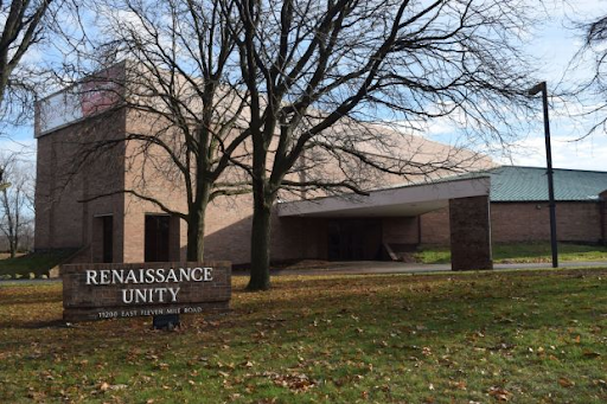
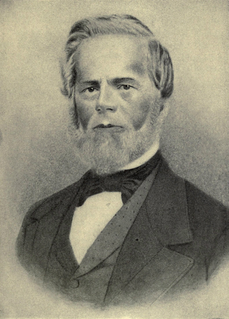
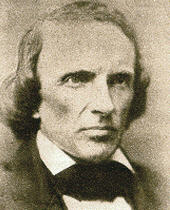
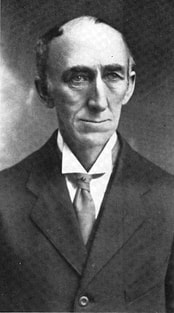
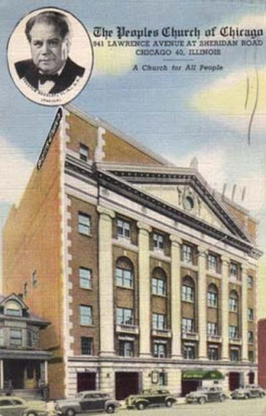
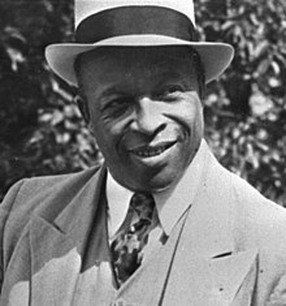
 RSS Feed
RSS Feed